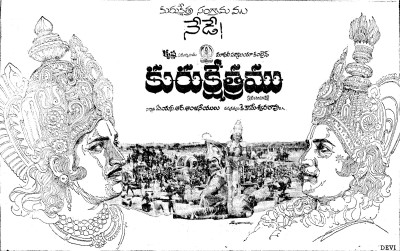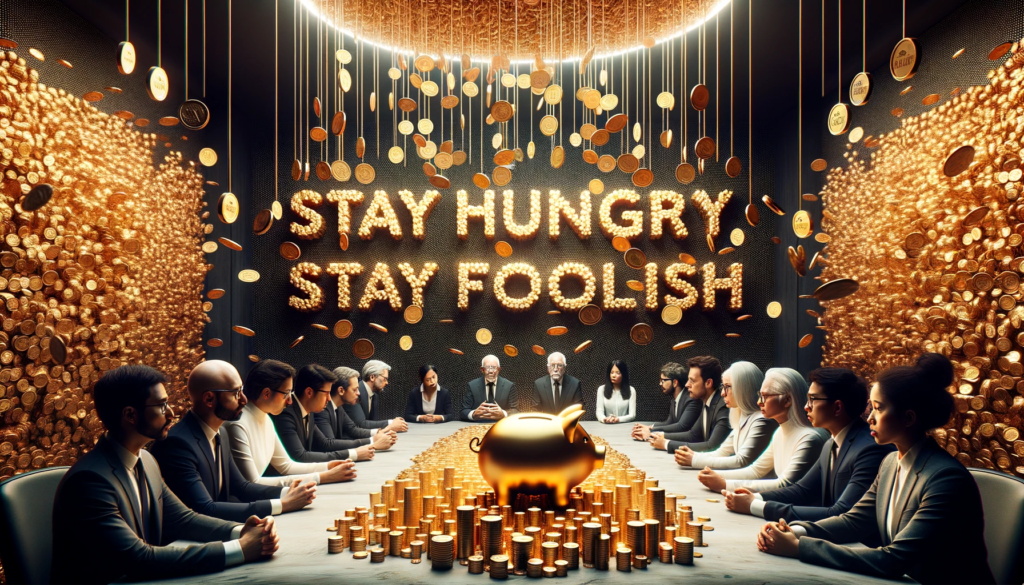
The movie ‘Kurukshetram’ (1977) is a mixed bag. On one hand, it encapsulates a condensed version of the epic Mahabharata, which is commendable. The film successfully portrays significant events from the Mahabharata, such as the division of the kingdom, Subhadra and Arjuna’s marriage, the Rajasuya sacrifice, and the great battle of Kurukshetra. The director, Kamalakara Kameswara Rao, deserves credit for bringing these key episodes to life.
However, despite its ambitious scope, ‘Kurukshetram’ failed to click at the box office. It struggled to attract audiences and gain commercial success. Interestingly, another film titled ‘Dana Veera Soora Karna’ was released at the same time and turned out to be a hit. This contrast in reception highlights the challenges faced by ‘Kurukshetram’ in capturing the audience’s attention and interest.
While ‘Kurukshetram’ may have fallen short in terms of box office success, it still holds value for its attempt to condense the vast narrative of the Mahabharata into a single film. It serves as a visual representation of the epic, allowing viewers to witness key moments and episodes from this ancient tale. For enthusiasts of the Mahabharata, ‘Kurukshetram’ can be an intriguing watch despite its commercial shortcomings.
In terms of the Mahabharata parvas, ‘Kurukshetram’ primarily focuses on the Adi Parva, Sabha Parva, Vana Parva, Udyoga Parva, Bhishma Parva, and Sauptika Parva. These parvas encompass the major events leading up to and during the Kurukshetra war. However, it’s worth noting that the film does not delve into the other parvas, such as Virata Parva, Drona Parva, Karna Parva, Shalya Parva, and so on. This selective approach may have contributed to the film’s lackluster performance at the box office.
| No. | Mahabharata Adhyayas/Parvas | Summary | Highlights | ‘Kurukshetram’ Movie Plot Aspects |
|---|---|---|---|---|
| 1 | Adi Parva | The Adi Parva introduces the main characters and sets the stage for the grand narrative, including the birth and early life of the Pandavas and Kauravas. | Main characters introduction, Birth of Pandavas and Kauravas | Subhadra Arjuna Kalyanam (Marriage) |
| 2 | Sabha Parva | Sabha Parva revolves around the royal assembly, showcasing the dice game that leads to the Pandavas’ exile. | Dice game, Pandavas’ exile, Rajasuya Sacrifice | Division of kingdom, Rajasuya Yagnam (Rajasuya Sacrifice), Dice game |
| 3 | Vana Parva | Vana Parva narrates the twelve-year exile of the Pandavas in the forest following the dice game. | Twelve-year exile, Forest life | Pandava Exile |
| 4 | Virata Parva | Virata Parva covers the year the Pandavas spend incognito, serving the royal family of Virata. | Incognito year, Service to Virata | None |
| 5 | Udyoga Parva | Udyoga Parva portrays the preparations for the great war of Kurukshetra, with various attempts at negotiations and alliances. | War preparations, Negotiations, Alliances | None |
| 6 | Bhishma Parva | Bhishma Parva unfolds the first ten days of the war of Kurukshetra, focusing on Bhishma’s leadership in the battle. | First ten days of war, Bhishma’s leadership | Initial stages of Kirukshetra war |
| 7 | Drona Parva | Drona Parva centers on the next fifteen days of war under the command of Drona. | Fifteen days of war, Drona’s command | None |
| 8 | Karna Parva | Karna Parva delves into the two days of war led by Karna, and his eventual fall. | Two days of war, Karna’s fall | None |
| 9 | Shalya Parva | Shalya Parva encapsulates the last days of war, leading to the demise of most key warriors. | Last days of war, Demise of warriors | None |
| 10 | Sauptika Parva | Sauptika Parva recounts the night raid by Ashwatthama, leading to the massacre of the remaining Pandava army. | Night raid, Ashwatthama’s massacre | None |
| 11 | Stri Parva | Stri Parva mourns the dead and reflects on the consequences of war through the eyes of the bereaved women. | Mourning the dead, Consequences of war | None |
| 12 | Shanti Parva | Shanti Parva is a discourse of peace, with Bhishma providing insights on dharma and governance on his deathbed. | Discourse of peace, Bhishma’s insights | None |
| 13 | Anushasana Parva | Anushasana Parva continues with Bhishma’s discourses on various subjects until his passing. | Continued discourses, Bhishma’s passing | None |
| 14 | Ashwamedhika Parva | Ashwamedhika Parva describes the Ashwamedha sacrifice conducted by Yudhishthira to atone for the war’s sins. | Ashwamedha sacrifice, Atonement | None |
| 15 | Ashramavasika Parva | Ashramavasika Parva narrates the later life of the Pandavas and Dhritarashtra’s retirement to the forest. | Later life, Dhritarashtra’s retirement | None |
| 16 | Mausala Parva | Mausala Parva depicts the later days and the eventual demise of Krishna. | Later days, Demise of Krishna | None |
| 17 | Mahaprasthanika Parva | Mahaprasthanika Parva narrates the Pandavas’ final journey towards the Himalayas and their ascent to heaven. | Final journey, Ascent to heaven | None |
| 18 | Swargarohanika Parva | Swargarohanika Parva concludes the epic with the Pandavas’ ascent to heaven and the eternal dharma’s restoration. | Pandavas’ ascent to heaven, Dharma’s restoration | None |



